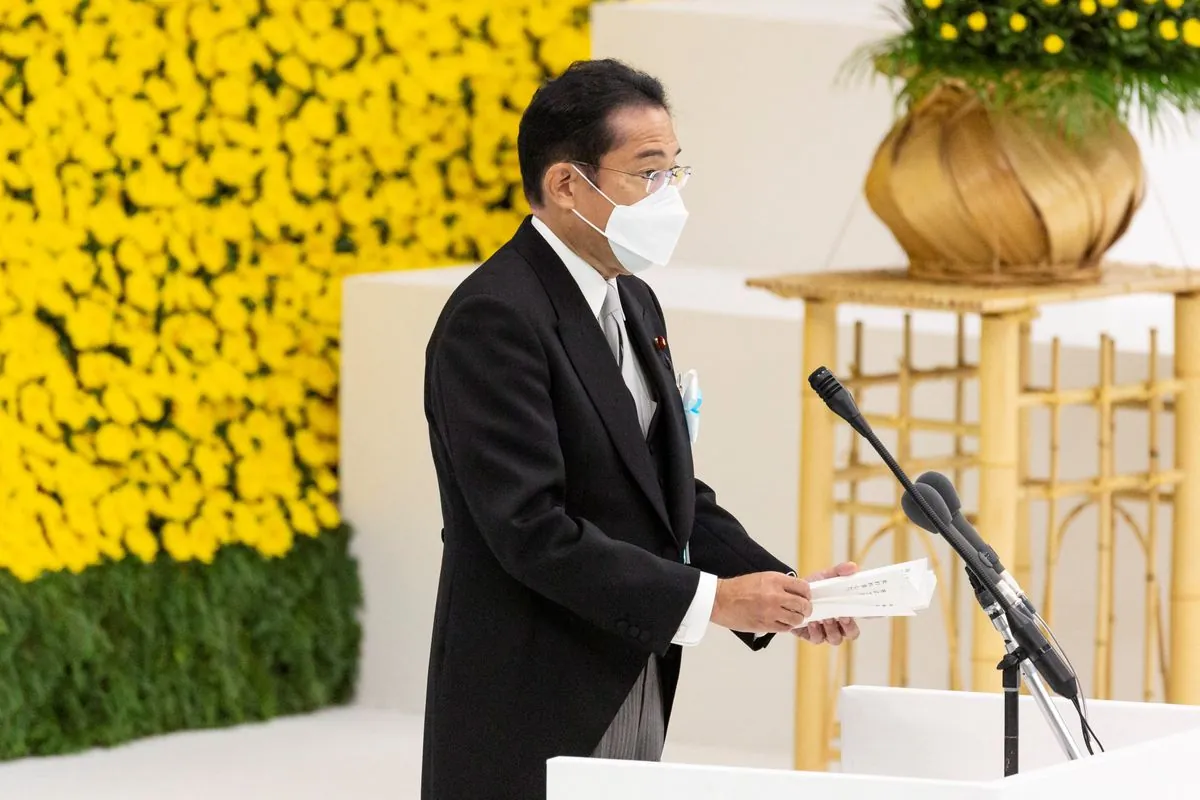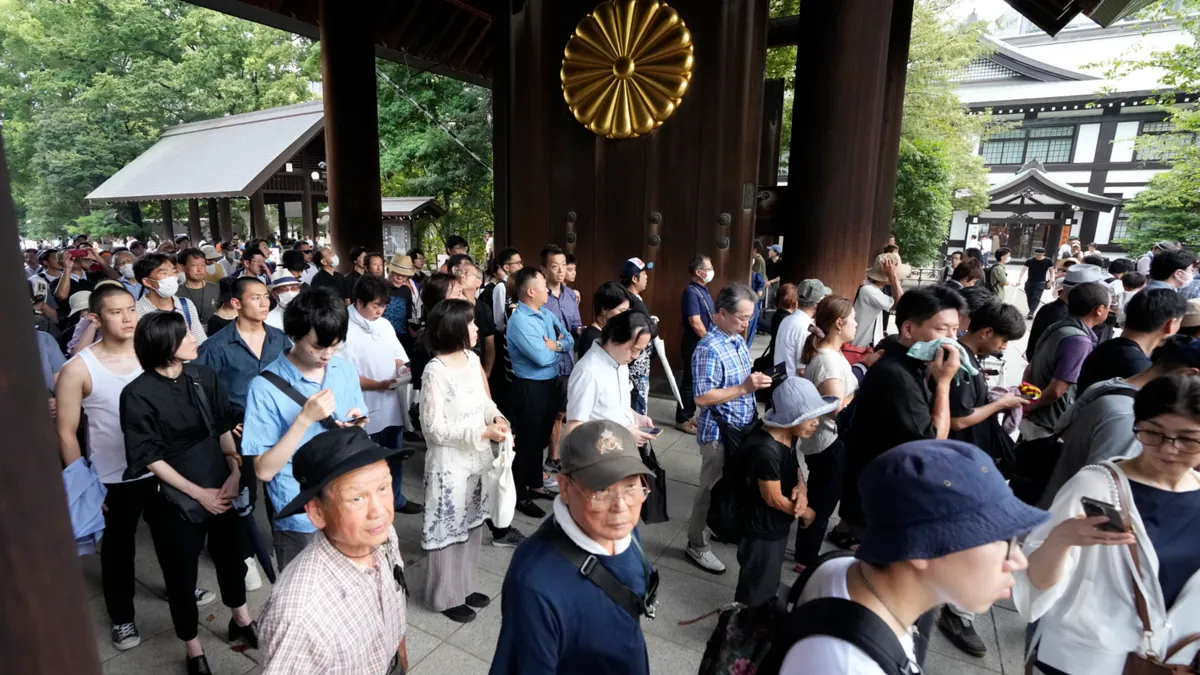Japan's PM Pledges Peace on WWII Anniversary Amid Controversy
On the 79th anniversary of Japan's WWII defeat, PM Kishida vows to uphold international order. Ministers' shrine visit and omission of wartime apology spark debate as Japan increases military spending.

On August 15, 2024, marking the 79th anniversary of Japan's defeat in World War II, Prime Minister Fumio Kishida delivered a peace pledge at the Budokan hall in Tokyo. The solemn ceremony, held in the venue originally constructed for the 1964 Tokyo Olympics, saw Kishida reaffirming Japan's commitment to maintaining a rules-based international order and resolving global challenges.
Kishida emphasized Japan's post-war pacifist stance, stating, "We will never again repeat the tragedy of war." This commitment aligns with Article 9 of Japan's constitution, enacted in 1947, which renounces war as a means of settling international disputes. The Prime Minister acknowledged the loss of over 3 million Japanese lives during the conflict, including casualties from the battles in Okinawa and the atomic bombings of Hiroshima and Nagasaki.
However, Kishida's speech notably omitted any apology for Japan's wartime aggression in Asia, following a precedent set by former Prime Minister Shinzo Abe in 2013. This omission has drawn criticism from those who view it as a whitewashing of Japan's wartime atrocities.

Controversy arose as three of Kishida's ministers, including Defense Minister Minoru Kihara, visited the Yasukuni Shrine. This shrine, founded in 1869, honors about 2.5 million war dead, including 14 Class A war criminals convicted by the Tokyo War Crimes Tribunal. Kihara's visit marks the first by a serving defense chief on the anniversary since 2021, reigniting tensions with neighboring countries who view such visits as a lack of remorse for past aggressions.
Emperor Naruhito, who ascended to the throne in 2019, expressed "deep remorse" over Japan's wartime actions during the ceremony. His statement carries significant weight, considering the war was fought in the name of his grandfather, Emperor Hirohito.
"I express my deep remorse for the actions of Japan during World War II."
The commemoration comes at a time when Japan is significantly increasing its military capabilities. The country's defense budget for 2024 reached a record high of approximately 6.8 trillion yen ($46 billion), reflecting Kishida's acceleration of military buildup and spending. This shift is partly in response to growing regional tensions, particularly with China and North Korea.
Japan's Self-Defense Forces, established in 1954, are undergoing expansion as the country deepens its military cooperation with the United States and other Indo-Pacific partners. This strategic alignment is based on the U.S.-Japan security treaty signed in 1960, which forms the cornerstone of their alliance.
The peace pledge and ongoing military developments highlight the complex balance Japan is trying to maintain between its pacifist constitution and the perceived need for stronger defense capabilities. This dichotomy has been a subject of debate both within Japan and internationally since the country's remilitarization began.
Kishida, who took office in 2021, announced his intention to step down following the Liberal Democratic Party leadership vote in September 2024. The LDP has held power almost continuously since 1955, shaping much of Japan's post-war policy.
As Japan navigates its role in the international community, the annual World War II commemoration continues to serve as a poignant reminder of the nation's complex history and its ongoing efforts to contribute to global peace and stability.


































